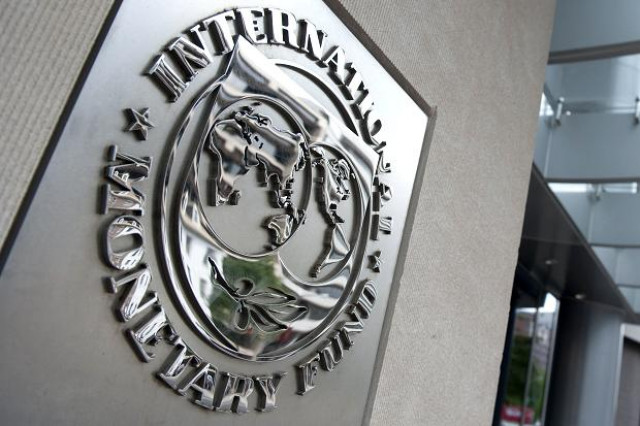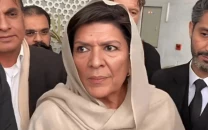IMF gives go-ahead to $506.4 million loan tranche
The IMF board also approves changes in Net International Reserves targets for two quarters

The IMF board also approves changes in Net International Reserves targets for two quarters. PHOTO COURTESY: THE TIMES
Amid calls for quick and decisive action on energy and taxation fronts, the International Monetary Fund (IMF) on Friday approved the release of a $506.4 million loan tranche to Pakistan, ending the relatively easy part of the three-year bailout programme.
The decision to disburse the next loan tranche was taken by the IMF Executive Board in a meeting in Washington after it approved the seventh review of Pakistan’s economy for the period of January-March of the outgoing fiscal year. This paved the way for release of the eighth loan tranche of $506.4 million that will be made available to Islamabad next week.
In September 2013, the IMF had approved a three-year Extended Fund Facility amounting to $6.6 billion. With the fresh approval, the IMF’s total disbursements since September 2013 have come to $4.1 billion.
With the approval of the seventh review, Pakistan has crossed the midpoint. So far, the focus of the IMF remained on quantitative targets. The IMF now wants to shift to critical structural reforms.
Read: Bailout programme: IMF, Pakistan relation enters deeper waters
The IMF board also approved changes in Net International Reserves (NIR) targets for two quarters. The IMF counts the NIR by excluding all foreign currency reserves related liabilities.
Pakistan had met all the conditions for January-March period and like the sixth review, it did not require any waiver from the executive board this time. However, in first five reviews, the IMF gave ten waivers to keep the bailout programme on track, as the government’s performance remained mixed in areas of reducing its budgetary borrowings from the central bank and building foreign currency reserves.
The government also met the indicative target on social spending under the Benazir Income Support Programme, while the indicative target for federal tax revenue was missed by a small margin.
Pakistan has made encouraging progress towards improving its economic resilience, and imbalances continue to be addressed, said IMF Mission Chief to Islamabad, Harald Finger. The mission chief said these achievements are presenting a welcome opportunity to reinforce the recent stability gains and to make further inroads on the structural reform agenda.
Read: Pakistan's economy has improved, says IMF
While placing emphasis on undertaking structural reforms in the remainder period of the programme, Finger said, “important elements will include quick and decisive implementation of energy sector reforms, broadening the tax base, restructuring of state-owned enterprises, and improving the business climate.”
The government’s performance on energy and taxation fronts remains discouraging, as it has failed to undertake much-needed reforms in these areas. This also delayed disbursement of $900 million loans by the World Bank and the Asian Development Bank. The delay in implementing energy reforms is costing the country roughly 2% of its Gross Domestic Product every year.
The IMF said it now wants Pakistan to take decisive action to improve tax affairs. For the outgoing fiscal year, the IMF and Pakistan had agreed on Rs2.810 trillion revenue collection target for the Federal Board of Revenue.
After the 2014 budget, the government introduced five mini budgets to levy roughly Rs360 billion additional taxes – the highest ever taxation in a single year. Yet the FBR has miserably failed to hit even the revised target of Rs2.605 trillion. The FBR is expected to close the fiscal year by collecting around Rs2.575 trillion, according to the FBR’s officials.
Published in The Express Tribune, June 27th, 2015.



















COMMENTS
Comments are moderated and generally will be posted if they are on-topic and not abusive.
For more information, please see our Comments FAQ